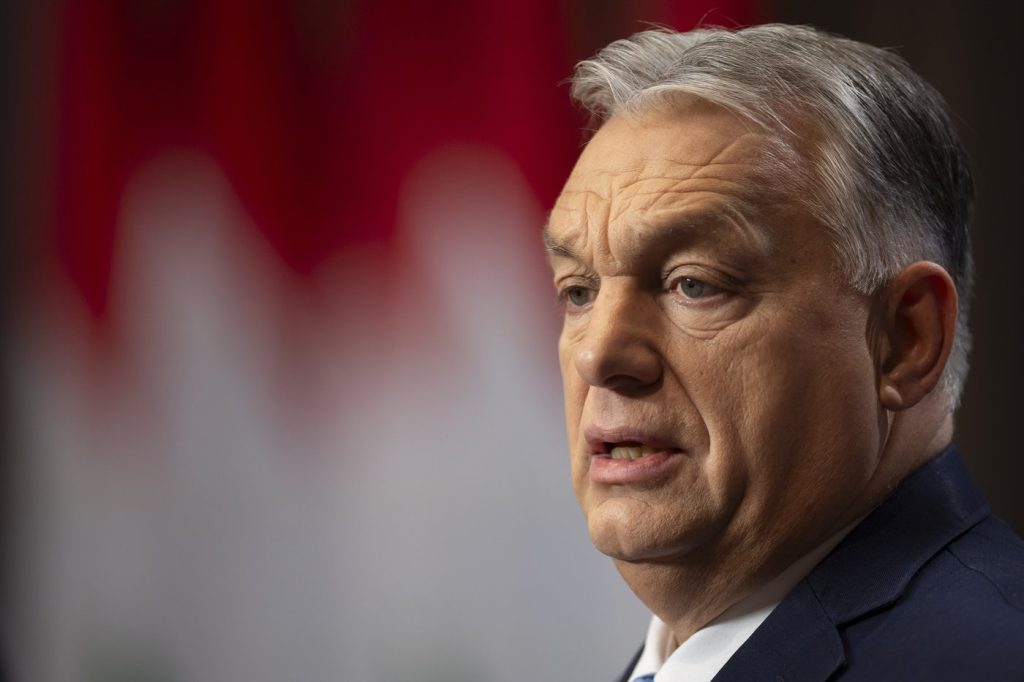BUDAPEST, Hungary (AP) – U.S. sanctions imposed last week against Antal Rogán, a high-ranking Hungarian official with close ties to Prime Minister Viktor Orbán, have unexpectedly bolstered Rogán's influence within the populist government, according to Orbán's comments made on state radio. The U.S. Treasury Department suspects Rogán of involvement in official corruption, yet Orbán maintains strong confidence in him, asserting that the sanctions have actually strengthened Rogán's position in Hungarian politics.
During the broadcast, Orbán emphasized Rogán's role as the minister responsible for national security services, describing him as the primary guardian of Hungarian sovereignty. He posited that being sanctioned by a powerful nation like the U.S. is indicative of Rogán's effectiveness in his role. Orbán stated, “He is doing his job well,” suggesting that the actions taken by the U.S. only validate Rogán's ministerial role.
The U.S. sanctions are part of a larger context of European Union penalties against Hungary, which have withheld billions in funding due to widespread concerns regarding official corruption. The Treasury’s Office of Foreign Assets Control has accused Rogán of leveraging his governmental position to facilitate favorable business arrangements with pro-government businessmen. This has further drawn criticisms of systemic corruption in Hungary, which U.S. Ambassador to Hungary, David Pressman, described as a “kleptocratic ecosystem.”
Rogán, often referred to by critics as the “propaganda minister,” is known for orchestrating extensive government communication strategies that have been crucial in maintaining Orbán's power since 2010. While he seldom makes public appearances or gives interviews, Rogán possesses significant sway as a seasoned adviser to Orbán and is responsible for overseeing Hungary's secret services.
In light of the U.S. sanctions, Orbán expressed optimism regarding the future of U.S.-Hungary relations. He anticipates a “golden age” under the incoming presidency of Donald Trump, attributing this to Trump’s potential to revive relationships that have soured over Hungary's perceived drift from democratic values and its increasing alignment with Russia and China.
Orbán conveyed that he expects Trump's presidency to uplift Hungary's struggling economy, hinging this forecast on an impending resolution to the conflict in neighboring Ukraine. A noted critic of Ukraine, Orbán is recognized for having a particularly close relationship with the Kremlin among EU leaders. He has actively opposed providing economic and military assistance to Ukraine, arguing against sanctions placed on Russia regarding its actions in the region.
During his remarks, Orbán suggested that under Trump's administration, the European Union should eliminate existing sanctions and work towards establishing a cooperative relationship with Russia. He voiced concerns about the implications of postwar Ukraine joining the EU, deeming it a potential risk to the European economy. Orbán articulated that “economic cooperation with Ukrainians raises many issues,” highlighting his perspective that the challenges outweigh the potential benefits.
Overall, Orbán's statements reveal his staunch support for Rogán amidst external pressures and a broader geopolitical context defined by tensions between the EU, the U.S., and entities within Eastern Europe. As the dynamics of international relations evolve with the transition to the Trump administration, Orbán looks forward to a strengthened alliance that he hopes will benefit Hungary's political and economic landscape.










